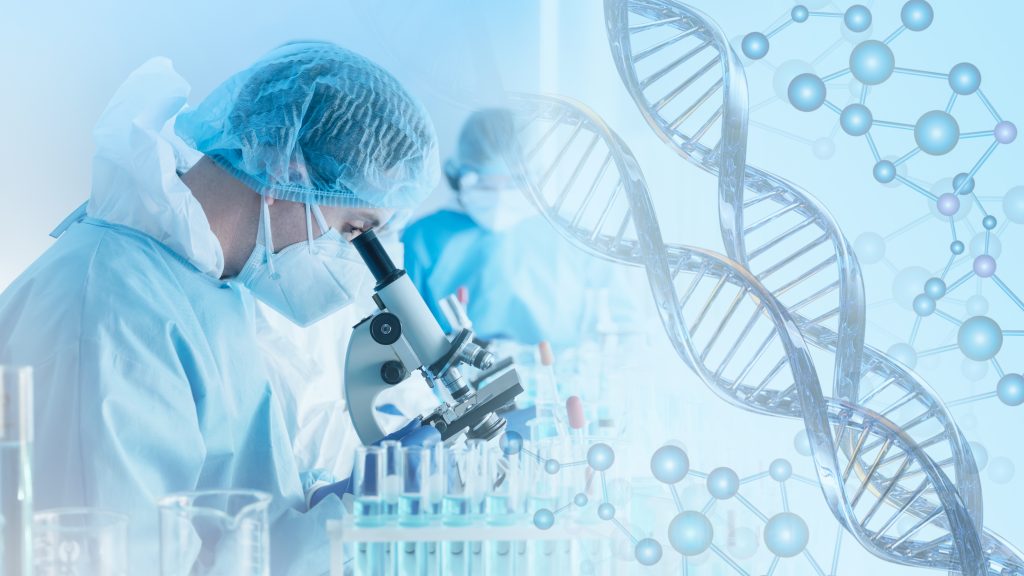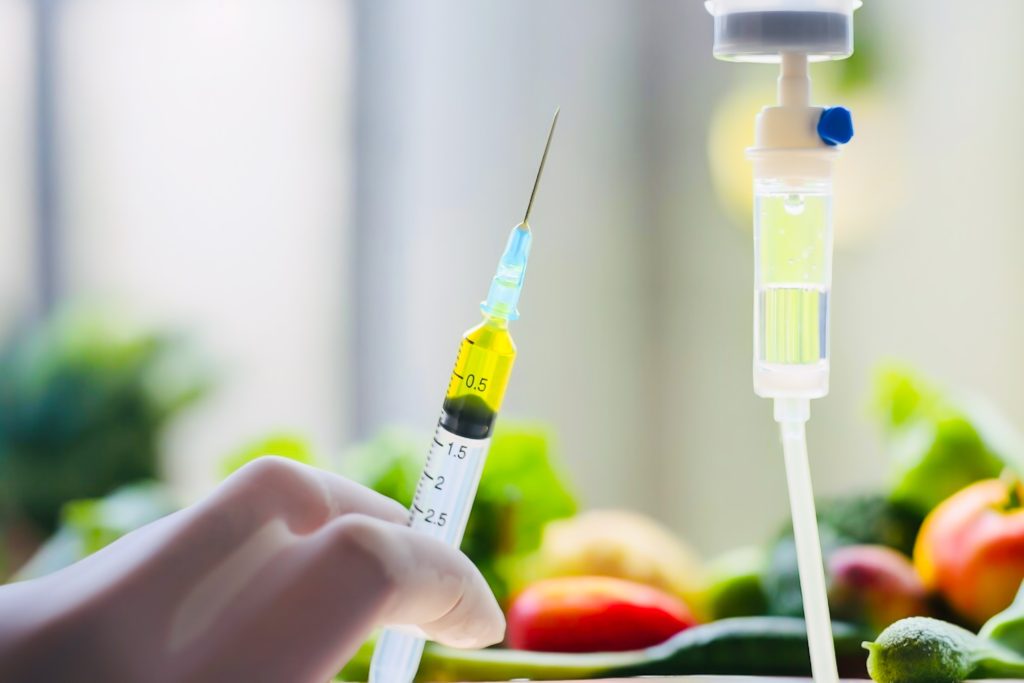Hodgkin’s Lymphoma is a type of cancer that affects the lymphatic system, which plays a crucial role in fighting infections and diseases in the body. While Hodgkin’s Lymphoma can occur at any age, it is most commonly diagnosed in people between the ages of 15 and 35, as well as those over 55 years old.
Recognizing the signs and symptoms of Hodgkin’s Lymphoma is essential for early detection and treatment. The quicker the disease is diagnosed, the better the prognosis for the patient.
Key Takeaways
- Hodgkin’s Lymphoma is a type of cancer that affects the lymphatic system.
- Recognizing the signs and symptoms of Hodgkin’s Lymphoma is essential for early detection and treatment.
- Early detection can lead to better prognosis for patients.
Understanding Hodgkin’s Lymphoma
Hodgkin’s lymphoma is a type of cancer that originates in the lymphatic system, which is responsible for filtering blood and fighting infections. It occurs when cells in the lymphatic system begin to grow abnormally and can spread to other parts of the body if left untreated.
The warning signs and symptoms of Hodgkin’s lymphoma may vary from person to person. However, common symptoms include swollen lymph nodes, fatigue, unexplained weight loss, and night sweats. Less common symptoms can also occur, such as itching, fever, and chest pain.
It is important to recognize the early signs of Hodgkin’s lymphoma and seek medical attention promptly. Early detection increases the likelihood of successful treatment and better outcomes. Treatment options for Hodgkin’s lymphoma may include chemotherapy, radiation therapy, and stem cell transplantation.
Recognizing Common Symptoms
Hodgkin’s lymphoma can cause a variety of symptoms that may be easy to dismiss as minor inconveniences. However, it is important to recognize these symptoms and seek medical attention if they persist. The following are some of the most common symptoms associated with Hodgkin’s lymphoma:
| Symptom | Description |
|---|---|
| Swollen lymph nodes | The most common symptom of Hodgkin’s lymphoma is the enlargement of one or more lymph nodes, usually in the neck, armpit, or groin. These nodes are often painless and may feel firm or rubbery to the touch. |
| Fatigue | Excessive tiredness that does not improve with rest is a common symptom of Hodgkin’s lymphoma. This symptom may be accompanied by weakness, malaise, or a general feeling of discomfort. |
| Unexplained weight loss | Losing weight without trying is a common sign of Hodgkin’s lymphoma. This symptom is usually defined as a loss of more than 10% of body weight over a six-month period. |
| Night sweats | Like fatigue, night sweats are a common symptom of Hodgkin’s lymphoma that can interfere with a person’s sleep and overall quality of life. These sweats are often profuse and may drench the sheets and clothing. |
If you experience any of these symptoms for an extended period, it is important to seek medical attention promptly. Early detection and treatment of Hodgkin’s lymphoma can improve outcomes and increase the likelihood of a full recovery.
Less Common Symptoms to Look Out For
In addition to the more common symptoms of Hodgkin’s lymphoma, there are several less common symptoms that individuals should also be aware of. While these symptoms may not be as well-known, understanding them can help with early detection and treatment of the disease.
Itching
Unexplained and persistent itching may be a sign of Hodgkin’s lymphoma. This symptom is often accompanied by a rash, which may appear on the chest, back, arms, or legs. While itching alone does not necessarily indicate cancer, it is important to discuss any persistent symptoms with a healthcare professional.
Fever
Fever is a less common symptom of Hodgkin’s lymphoma, but it may indicate that the disease has spread beyond the lymph nodes. A fever may also be a side effect of chemotherapy and other cancer treatments. If a fever persists for more than a few days, it is important to seek medical attention.
Chest Pain
Chest pain may be a sign of Hodgkin’s lymphoma if the cancer has spread to the lymph nodes in the chest. Pain may also be a side effect of certain chemotherapy drugs. It is important to discuss any persistent chest pain with a healthcare professional to determine the cause.
It is important to remember that these less common symptoms may not always be indicative of Hodgkin’s lymphoma. However, if any of these symptoms persist for more than a few weeks, it is important to seek medical attention. Early detection and treatment can improve outcomes and increase the chances of successful recovery.
Recurrent Hodgkin’s Lymphoma: Signs and Challenges
Recurrent Hodgkin’s lymphoma occurs when the disease returns after treatment. This can happen months or even years after the initial diagnosis. Unfortunately, recurrent Hodgkin’s lymphoma is typically more difficult to treat than the first time around.
Some signs that Hodgkin’s lymphoma has returned include swollen lymph nodes, fatigue, weight loss, night sweats, and fever. However, these symptoms may not be present in all cases, and other symptoms may arise depending on the location of the recurrence.
Challenges of Recurrent Hodgkin’s Lymphoma
Recurrent Hodgkin’s lymphoma poses several challenges for patients and their healthcare providers. The disease may be resistant to previous treatments, making it challenging to find an effective treatment plan. Additionally, recurrent Hodgkin’s lymphoma may result in physical and emotional changes that can affect a patient’s quality of life.
Patients with recurrent Hodgkin’s lymphoma require close monitoring and may need to undergo additional tests to determine the extent of the recurrence. Healthcare providers may recommend a combination of treatment options and may need to modify previous treatment plans.
Diagnosing Hodgkin’s Lymphoma
Diagnosing Hodgkin’s Lymphoma typically involves a combination of physical exams, imaging tests, and biopsies. If an individual is experiencing symptoms that may indicate the presence of Hodgkin’s Lymphoma, such as swollen lymph nodes or unexplained weight loss, a healthcare professional will likely begin the diagnostic process by conducting a physical exam to check for any abnormalities or lumps.
Following a physical exam, a doctor may order imaging tests, such as CT scans, PET scans, or MRIs, to get a better look at the lymphatic system and any potential cancerous growths. Imaging tests can help a healthcare professional determine the extent of the disease and which treatment approach may be the most effective.
In some cases, a biopsy may be necessary to confirm a diagnosis of Hodgkin’s Lymphoma. During a biopsy, a small amount of tissue is removed from a lymph node and examined under a microscope to look for signs of cancer. This can help a doctor determine the specific type of Hodgkin’s Lymphoma present and whether the cancer has spread to other areas of the body.
Advanced Diagnostic Testing at Cancer Center for Healing
The Cancer Center for Healing offers advanced diagnostic testing for Hodgkin’s Lymphoma and other types of cancer. Our team of healthcare professionals are well-versed in the latest diagnostic techniques and can provide patients with a comprehensive and accurate diagnosis.
In addition to traditional imaging tests and biopsies, the Cancer Center for Healing offers cutting-edge diagnostic testing, such as genetic analysis and functional medicine testing. These tests can provide valuable information about a patient’s overall health and any underlying conditions that may be contributing to the development of cancer.
Holistic Treatment Approaches at Cancer Center for Healing
When it comes to cancer care, the Cancer Center for Healing in Irvine, California offers a comprehensive and holistic approach. Under the guidance of Dr. Leigh Erin Connealy, patients receive individualized treatment plans that address their unique needs, both physically and emotionally.
The center offers a range of holistic treatment modalities that support healing and wellness. This includes nutritional therapy, acupuncture, IV vitamin C therapy, and detoxification protocols. Patients can trust that they are receiving care that is designed to support their body’s natural healing processes.
Comprehensive Cancer Care at Cancer Center for Healing
The Cancer Center for Healing provides comprehensive cancer care that addresses the whole person, including physical, emotional, and spiritual needs. They take a personalized approach to treatment, designing individualized plans that incorporate a range of holistic treatment modalities.
| Treatment Modalities Offered: | Nutritional Therapy | Acupuncture | IV Vitamin C Therapy | Detoxification Protocols |
|---|
These holistic treatment modalities complement conventional treatments and help to manage symptoms, reduce side effects, and improve overall well-being. The Cancer Center for Healing’s team of experienced healthcare professionals works together to provide comprehensive and integrated cancer care that focuses not just on treating the disease but on supporting the whole person.
Treatment Modalities Offered
The Cancer Center for Healing offers a comprehensive range of holistic treatment modalities designed to address the unique needs of each patient. Under the guidance of Dr. Leigh Erin Connealy, a highly experienced integrative medical practitioner, the center combines cutting-edge conventional treatments with evidence-based alternative therapies to achieve optimal results.
Some of the holistic treatment modalities offered at the Cancer Center for Healing include:
| Treatment Modality | Description |
|---|---|
| Nutritional Therapy | A personalized nutrition plan aimed at providing essential nutrients and nourishment to the body, promoting overall health and wellness. |
| Acupuncture | A traditional Chinese medicine therapy aimed at balancing the body’s energy and promoting optimal health. |
| IV Vitamin C Therapy | A high-dose vitamin C therapy aimed at strengthening the immune system and promoting overall health. |
| Detoxification Protocols | A combination of therapies aimed at removing toxins from the body and promoting overall health and wellness. |
These treatment modalities work synergistically to target underlying imbalances and promote overall health and wellness. The Cancer Center for Healing’s experienced team of healthcare practitioners work closely with patients to develop a personalized treatment plan that addresses their unique needs and ensures optimal results.
Combining Conventional and Integrative Approaches
At the Cancer Center for Healing, the staff believes that a comprehensive approach to cancer care involves both conventional and integrative treatment modalities. By combining conventional approaches, such as chemotherapy and radiation therapy, with holistic and natural therapies, patients can experience a more comprehensive healing process that addresses the whole person, both physically and emotionally.
Integrative modalities, including nutritional therapy, acupuncture, IV vitamin C therapy, and detoxification protocols, can help support the body’s natural healing processes and reduce the side effects of conventional treatments. By using this approach, patients can achieve better outcomes and feel empowered to take an active role in their healing journey.
Schedule a Consultation at Cancer Center for Healing
If you or someone you know is experiencing signs and symptoms of Hodgkin’s lymphoma, it is important to seek medical attention as soon as possible. Cancer Center for Healing, located in Irvine, California, offers comprehensive and holistic cancer care under the guidance of Dr. Leigh Erin Connealy.
To schedule a consultation with Dr. Connealy or to learn more about the treatment modalities offered at Cancer Center for Healing, please call (949) 680-1880. We look forward to supporting you on your journey to optimal health and wellness.
Promoting Early Detection and Treatment
Early detection and treatment are crucial for improving the prognosis of Hodgkin’s lymphoma. Patients who recognize the symptoms and seek medical attention promptly have a better chance of successful treatment outcomes. If you experience any concerning symptoms, such as swollen lymph nodes, unexplained weight loss, or night sweats, it is essential to consult with a healthcare professional.
Regular check-ups and screenings can also help identify any potential health concerns early on, allowing for prompt intervention and treatment. As with all cancers, early detection and treatment are critical for improving survival rates and quality of life.
If you are diagnosed with Hodgkin’s lymphoma, it is essential to work closely with your healthcare team to determine the best course of treatment for your unique needs. The Cancer Center for Healing offers comprehensive cancer care, including personalized treatment plans that incorporate both conventional and integrative approaches. Contact the Cancer Center for Healing today to schedule a consultation and learn more about our holistic treatment modalities.
Supporting Patients in their Cancer Journey
The Cancer Center for Healing is committed to supporting patients throughout their cancer journey, both physically and emotionally. The experienced team at the center recognizes the importance of addressing not just the disease, but also the individual as a whole.
The Cancer Center for Healing provides a range of resources to support patients, including counseling services, support groups, and educational materials. These resources are designed to help patients and their families navigate the challenges of living with cancer, offering emotional support and guidance throughout the process.
At the Cancer Center for Healing, the focus is on providing comprehensive cancer care that addresses all aspects of a patient’s health and well-being. This includes personalized treatment plans that are designed to meet the unique needs of each individual, incorporating a range of holistic treatment modalities alongside conventional approaches to cancer care.
Living a Healthy Lifestyle
While there is no guaranteed way to prevent Hodgkin’s lymphoma, living a healthy lifestyle can reduce your risk of developing the disease. Here are some tips to keep in mind:
- Eat a balanced, nutritious diet that includes plenty of fruits and vegetables.
- Exercise regularly to maintain a healthy weight and improve overall health.
- Avoid smoking and limit alcohol consumption, which can weaken the immune system and increase the risk of cancer.
- Manage stress through relaxation techniques like meditation or yoga.
By adopting healthy habits, you can not only reduce your risk of Hodgkin’s lymphoma, but also improve your overall health and well-being.
Staying Informed and Educated
Keeping up-to-date with the latest information about Hodgkin’s lymphoma is crucial for early detection and successful treatment. Knowledge empowers patients to make informed decisions about their health and well-being.
One way to stay informed is by seeking reliable sources of information. Patients can consult with their healthcare professionals and ask questions about their condition. They can also attend educational events, such as seminars or workshops, to learn about the latest treatments and therapies.
Another way to stay informed is by engaging in discussions with other patients and caregivers. Online forums or support groups provide opportunities to connect with others who have experienced similar situations. Patients can share their experiences, ask questions, and learn from one another.
Remember, knowledge is power. By staying informed and educated, patients can take an active role in their cancer journey and make informed decisions about their care.
Conclusion
Hodgkin’s lymphoma is a serious disease that requires early detection and prompt treatment. Recognizing the signs and symptoms is crucial for achieving successful outcomes and improving overall survival rates. The Cancer Center for Healing in Irvine, CA, offers comprehensive and holistic cancer care under the guidance of Dr. Leigh Erin Connealy. Their personalized treatment plans address the unique needs of each patient and combine conventional and integrative approaches to cancer care.
By staying informed and educated, living a healthy lifestyle, and seeking timely medical attention, individuals can take control of their health and reduce their risk of developing Hodgkin’s lymphoma. With emotional support and resources, including educational events, patients can feel confident and empowered in their cancer journey.
FAQ
Q: What are the key symptoms of Hodgkin’s lymphoma?
A: The key symptoms of Hodgkin’s lymphoma include swollen lymph nodes, fatigue, unexplained weight loss, and night sweats.
Q: What are the warning signs of Hodgkin’s lymphoma?
A: The warning signs of Hodgkin’s lymphoma include persistent swollen lymph nodes, unexplained fever, and itching.
Q: What are the common symptoms of Hodgkin’s lymphoma?
A: The common symptoms of Hodgkin’s lymphoma include swollen lymph nodes, fatigue, unexplained weight loss, and night sweats.
Q: What are the less common symptoms of Hodgkin’s lymphoma?
A: The less common symptoms of Hodgkin’s lymphoma may include itching, fever, and chest pain.
Q: What are the signs of recurrent Hodgkin’s lymphoma?
A: The signs of recurrent Hodgkin’s lymphoma may include the return of previously experienced symptoms, such as swollen lymph nodes or unexplained weight loss.
Q: How is Hodgkin’s lymphoma diagnosed?
A: Hodgkin’s lymphoma is diagnosed through physical exams, imaging tests, and biopsies.
Q: What treatment modalities are offered at the Cancer Center for Healing?
A: The Cancer Center for Healing offers a range of holistic treatment modalities, including nutritional therapy, acupuncture, IV vitamin C therapy, and detoxification protocols.
Q: How does the Cancer Center for Healing approach cancer care?
A: The Cancer Center for Healing takes a comprehensive and personalized approach to cancer care, combining conventional and integrative treatment approaches.
Q: How can I schedule a consultation at the Cancer Center for Healing?
A: To schedule a consultation at the Cancer Center for Healing, please call (949) 680-1880.
Q: How can I reduce my risk of developing Hodgkin’s lymphoma?
A: Maintaining a healthy lifestyle, including a balanced diet, regular exercise, stress management, and avoiding unhealthy habits, can help reduce the risk of developing Hodgkin’s lymphoma.
Q: How can I stay informed about Hodgkin’s lymphoma?
A: Staying informed about Hodgkin’s lymphoma involves seeking reliable sources of information, engaging in discussions with healthcare professionals, and attending educational events.


















